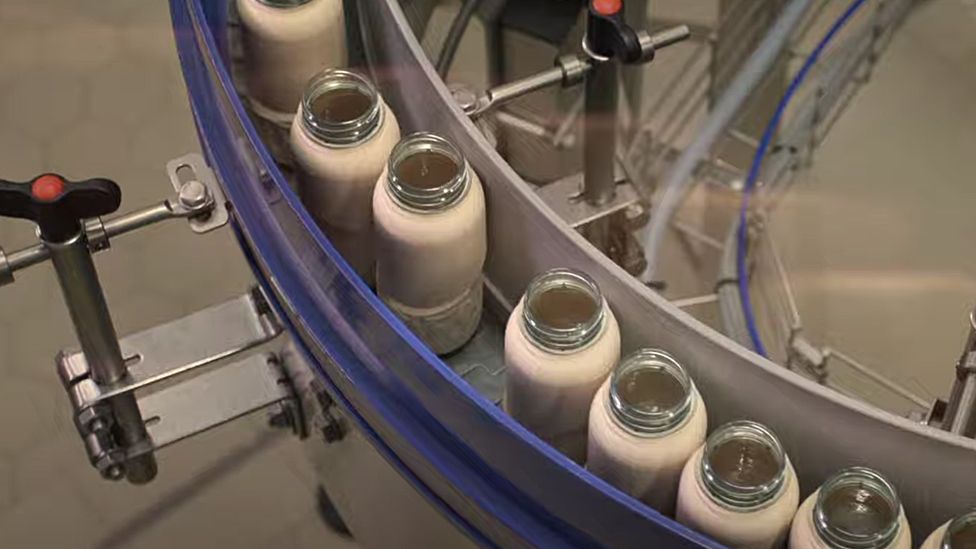Coca-Cola is to test a paper bottle as part of a longer-term bid to eliminate plastic from its packaging entirely.
The prototype is made by a Danish company from an extra-strong paper shell that still contains a thin plastic liner.
But the goal is to create a 100% recyclable, plastic-free bottle capable of preventing gas escaping from carbonated drinks.
The barrier must also ensure no fibres flake off into the liquid.
…
If only somebody could invent a bottle suitable for containing Coca-Cola but 100% recyclable, plastic-free, and food safe.
Oh wait… for the vast majority of its history, all Coca-Cola bottles have met this description! The original Coke bottles, back in 1899, were made of glass with a metal top. Glass is infinitely-recyclable (it’s also suitable for pressure-washing and reusing, saving even more energy, as those who receive doorstep milk deliveries already know) and we already have a recycling infrastructure for it in place. Even where new glass needs to be made from scratch, its raw ingredient is silica, one of the most abundant natural resources on the planet!
Bottle caps can be made of steel or aluminium and can be made in screw-off varieties in case you don’t have a bottle opener handy. Both steel and aluminium are highly-recyclable, and again with infrastructure already widespread. Many modern “metal” caps contain a plastic liner to ensure a good airtight fit (especially if it’s a screw cap, which are otherwise less-tight), but there are environmentally-friendly alternatives: bioplastics or cork, for example.
The worst things about glass are its fragility – which is a small price to pay – and its weight (making distribution more expensive and potentially more-polluting). But that latter can easily be overcome by distributing bottling: a network of bottling plants around the country (each bottling a variety of products, and probably locally-connected to reclamation and recycling schemes) would allow fluids to be transported in bulk – potentially even in concentrate form, further improving transport efficiency… and that’s if it isn’t just more ecologically-sound to produce Coke more-locally rather than transporting it over vast distances: it’s not like the recipe is particularly complicated.
In short: this is the stupidest environmental initiative I’ve seen yet this year.
